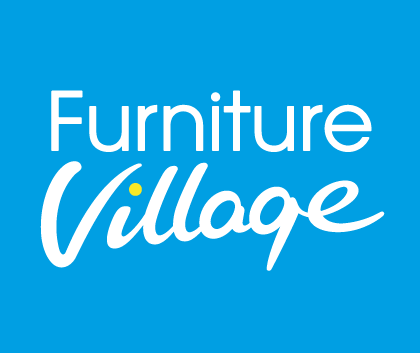
In this section
Travel
During the summer, many of us will head off to sunnier climes, keen to come back with a tan and that ‘straight out of the sun’ smell still lingering on our skin. But, whether you’re jet-setting to another time zone, or just dropping by our European neighbours for some delicious foreign cuisine – the change of location can have a real impact on your quality of sleep.
We spoke to sleep experts, Lisa Artis from The Sleep Council and leading sleep expert Dr Neil Stanley, to understand how our bodies react to changing time zones and temperatures, and how to make sure you still get enough shut eye while you travel.
As a qualified children’s sleep practitioner and experienced sleep advisor, Lisa has worked in the realm of sleep for more than six years. Heading up the day to day running of The Sleep Council, Lisa plays a proactive role in national campaigns including Sleeptember, National Sleep In Day and National Bed Month.
Dr. Neil Stanley is a freelance sleep expert who has been involved in sleep research for over 35 years. He co-authored the European Guidelines for accreditation of Sleep Medicine Centres and Sleep Medicine Education and has published 38 peer-review papers on various aspects of sleep research and psychopharmacology.
Temperature
Whether you’re on your way to see the Northern Lights in chilly Iceland, or to bake by the pool in steamy Alicante – changes in temperature can interfere with your rest.
Lisa from The Sleep Council says,
Hot, cold and draughty rooms can seriously impact on your sleep. Your body heat peaks in the evening and then drops to its lowest levels when you’re asleep, so a cool 16-18°C (60-65°F) is thought to be an ideal temperature for the bedroom. Temperatures over 24°C (71°F) are likely to cause restlessness, while a cold room of about 12°C (53°F) will make it difficult to nod off.
And while it might seem disquieting on your first trip abroad, to encounter beds with no more than a sheet to cover you through the night – there’s more to a good night’s sleep than just our home comforts.
As Dr Neil Stanley explains,
You lose heat out of your head and face as they are the bits that stick out from under your duvet. The temperature in your bed needs to be close to thermal neutral – approx. 29-30° C. If the bedroom temperature is too high this will make it more difficult to initiate sleep. And because you find it more difficult to lose the body heat, your sleep will be more restless.
Hot, cold and draughty rooms can seriously impact on your sleep.
Tips for sleeping in the heat from The Sleep Council
Apart from air-con and central heating, there are things you can do to help you warm up or cool down.

- 1
- 2
- 3
- 4
- If you have a fridge, you can chill a pair of bed socks – or even your pillowcases – before you go to bed. This will help keep you cool.
- Think about nightwear (or wearing none) dependent on temperature. Fabrics are also important. Breathable cotton is great for hotter climates.
- Keep curtains/blinds/shutters closed during the day and open windows to let a breeze in – just remember to bring a mosquito plug to avoid getting bitten during the night.
- Having a cool shower or bath before bedtime lowers your core body temperature and should help you drop off.
Jet lag
Jet lag is the inability to sleep at the right time, or being drowsy and sleepy at the wrong time – a mismatch between our biological clocks and the time zone we are in.
Our bodies follow a cycle of roughly 24-hours. During this time, our hormones rise and fall, making us feel hungry or full, alert or sleepy. And while the hypothalamus controls the lion’s share of this activity, it also takes its cues from the outside world - the light and the dark.
Any disruption of your routine, with light and dark occurring at different times, will mean your body takes some time to readjust.
Overcoming jet lag from The Sleep Council
As a general guide, the body takes roughly one day for each time zone travelled to adjust to a new cycle of day and night. So, you can probably travel through three hours without the need for specific counteractive measures.
As the body clock’s natural cycle is slightly longer than a day we find it easier to adjust travelling west, back in time, as it lengthens our day, whereas travelling east shortens it. There’s no absolute cure for jet lag, but difficulties can be combatted by using light, which can help you to re-set your body clock.

- 1
- 2
- 3
- 4
- 5
- 6
- During the flight set your watch to the local time at your destination. The airline may not feed you at the best time to suit your adjusting body clock, so try to keep back a roll or biscuit to eat at “normal” mealtimes according to the time at your destination.
- Take an eye mask and ear plugs with you. Use the mask and your seat’s nightlight to reflect the time at your destination – wear the mask if it is night time where you are going; keep the light on and mask off if it is day time.
- Drink plenty of water throughout the flight to prevent dehydration and also to help mobilise your energy reserves for your arrival. Avoid alcohol.
- Take regular walks up and down the aisle. Try some simple stretching exercises in your seat – straighten your legs and point and flex your toes, or stretch your arms high above your head. Do both these exercises for one minute every two hours.
- When you arrive at your destination use your diet to help you control your wakefulness: high protein meals increase your alertness, and high carbohydrate meals will make you feel sleepier.
- Daylight can help reset your internal clock, so take an early morning walk when you wake up in your new destination and spend as much time as possible outdoors.
Sleeping with one eye open
Your first night in a new environment can often be blighted by restless sleep. No matter how well you prepare yourself, or how comfortable your surroundings, you may still find yourself tossing and turning throughout the night. We asked Dr Neil Stanley about the phenomenon known as the ‘first-night effect’.
From an evolutionary perspective, you can only sleep if you feel safe and sound.
It would put us at an evolutionary disadvantage to be fully unconscious for eight hours a day, so during sleep the brain is monitoring the environment for potential threats. In your normal environment, the brain has become habituated to the various noises, etc. and thus these do not disturb you. However, when you go to a new environment with new and different stimuli your brain goes in to a ‘high alert’ state to monitor the potential threats.
As you adjust to your new surroundings, you should settle back into a more restful sleeping pattern.
However, if your holiday lifestyle is dramatically different to how you live at home, you might still experience trouble sleeping.
Change in habits
Whether it’s waking up at the crack of dawn to watch the sunrise at the water’s edge, or drinking cocktails out of fishbowls until the early morning, our habits change when we travel.
And this can wreak havoc on our sleep. But don’t let your holiday suffer, just follow these steps from The Sleep Council to set yourself up for peaceful snoozing:

- 1
- 2
- 3
- 4
- 5
- 6
- 7
- You can’t take your bed with you but if it’s possible, take your pillow.
- If you think outside noise or light might bother you take some ear plugs and an eye mask.
- Try to keep to regular hours as much as possible especially if you have children.
- Avoid alcohol a couple of hours before bedtime, swap to water in instead. Alcohol may help you fall asleep initially, but will interrupt your sleep later in the night.
- When you return to your accommodation, start your wind down routine as normal and spend at least 15 minutes relaxing.
- Check the temperature. Many hotel rooms set a temperature so make sure it suits you.
- Make the bed a 'sleep zone' and don’t use it for things such as watching TV or eating.
Wherever I rest my head is home
If you find that you regularly sleep better when away from home, it might be time to consider your home sleeping environment more carefully.
Is your bedroom too light? Does the sound outside of your window wake you? Are you too hot or too cold? Is your bedroom too cluttered?
Or are you simply uncomfortable?
Good spinal alignment is crucial for a good night’s sleep. That’s why there’s no magical mattress that suits everyone. We’re all different shapes, sizes and weights, so our bodies respond differently to different surfaces. But if you find you sleep more soundly on a different bed to your own, it could be a problem with your regular bed or mattress.
Spinal alignment is very important during sleep, essentially our bed and pillow need to keep our spine, and that includes the neck, in a neutral position.
This means that when you are on your side your spine needs to be straight, however when you are on your back your lower back has a slight curve and so the bed needs to support that (your spine is not straight when you stand upright). If your spine is not correctly aligned during the night this can lead to back pain and disturbed sleep.
Therefore, it’s important that you find a bed/pillow that works for you as an individual in keeping your spine in the correct alignment.
Dr Neil Stanley
If you’re sleeping better in a hotel bed than you are at home, the time has come to take the leap, and think about changing your mattress, bed, or both.